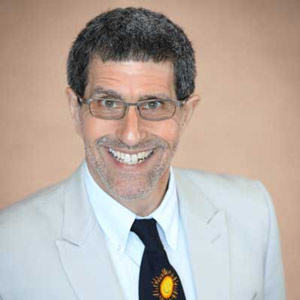Have you ever felt alone, even when surrounded by people? Do you struggle to connect with others, feeling that you don’t match their energy or vibe? If you constantly feel emotionally drained, unheard, or uninterested in conversations, you’re not alone. Many people experience these emotions, often leading to deeper feelings of isolation and loneliness.
If this sounds like you, individual counseling might be the support you need. Speaking with a professional counselor can help you navigate these emotions, understand their root causes, and work toward healing.
Understanding Loneliness and Emotional Isolation
Loneliness is more than just being physically alone. It’s an emotional state where you feel disconnected from others, even when surrounded by people. Emotional isolation occurs when you don’t feel understood, supported, or valued in your relationships. These feelings can stem from various experiences, including:
- Struggles with self-esteem and self-worth
- Anxiety or social discomfort
- Past traumas or unresolved emotional wounds
- Difficulty expressing emotions
- Feeling like an outsider in social situations
- Lack of meaningful connections
If you’re experiencing any of these, it’s crucial to address them before they lead to deeper mental health problems such as depression, chronic anxiety, or self-destructive behaviors.
The Role of Individual Counseling in Healing
Individual counseling provides a one-on-one therapeutic environment where you can openly discuss your struggles, thoughts, and fears.
A professional counselor can help you:
1. Identify the Root Causes of Loneliness
Many people who feel alone don’t fully understand the reason for their loneliness. A counselor can help you explore the past experiences, emotions, and thought patterns contributing to your isolation.
2. Develop Emotional Awareness and Expression
If you struggle to express yourself or feel unheard, counseling can teach you how to effectively communicate your thoughts and feelings. This can improve your relationships and help you build stronger connections with others.
3. Improve Self-Esteem and Confidence
Feeling like you don’t fit in or are not interesting to others can take a toll on your self-worth. A counselor can help you work through these beliefs, replacing negative self-talk with more positive and empowering thoughts.
4. Learn Healthy Coping Mechanisms
Many people who feel lonely turn to unhealthy coping strategies, such as avoiding social situations, overworking, or substance use. Individual counseling can introduce you to healthier ways of managing stress and loneliness, such as mindfulness, self-care routines, and positive affirmations.
5. Find Meaningful Connections
Through therapy, you can learn how to foster deeper, more meaningful relationships. A counselor can guide you in setting boundaries, improving social skills, and finding people who genuinely understand and support you.
Common Misconceptions About Counseling
Many people hesitate to seek counseling due to misconceptions. Let’s address some of them:
“Counseling is only for people with severe mental health issues.”
Counseling can benefit anyone struggling with difficult emotions, life transitions, or personal growth. You don’t need to have a clinical diagnosis to seek support.
“Talking to a counselor won’t change anything.”
While talking to a friend or family member can be helpful, a professional counselor has the expertise to guide you through self-discovery and healing. Counseling offers structured support tailored to your needs.
“I should be able to handle my problems on my own.”
Seeking help is not a sign of weakness—it’s a sign of self-awareness and strength. Everyone needs support at some point in life, and counseling is a proactive step toward emotional well-being.
How to Get Started With Individual Counseling
If you’re ready to take the first step toward healing, consider reaching out to a professional counselor. Here are some tips to get started:
- Acknowledge Your Feelings – Accept that your feelings of loneliness are valid and that seeking help is okay.
- Find the Right Counselor – Look for a licensed professional who specializes in individual counseling and aligns with your needs.
- Schedule an Initial Session – Many counselors offer a consultation to understand your concerns and discuss how they can help.
- Be Open and Honest – Therapy works best when you share your thoughts and feelings without holding back.
- Stay Committed to the Process – Healing takes time, but with consistent effort, you’ll start seeing positive changes in your life.
Final Thoughts
Feeling alone, emotionally hurt, or unheard can be overwhelming, but you don’t have to go through it alone. Individual counseling provides a safe space to explore your emotions, find clarity, and develop the skills to build meaningful connections.

About the Author: Dr. Scott Terry is a licensed marriage and family therapist with over 20 years of experience counseling individuals, couples, and families. He serves as the Executive and Clinical Director of the Ardent Counseling Center and Midwest Counseling LLC. Dr. Terry is also the founder of the Fairfield Mental Health Alliance and hosts the Mental Health Matters radio talk show. In addition to his therapeutic work, he is a hypnotherapist, educator, business consultant, and artist. His expertise spans a wide range of individual, couple, family, and teen counseling.
His background also includes supervising and training many psychotherapists from various disciplines through the Ardent Counseling Center. At Ardent Counseling Center, our compassionate professionals are here to support you on your journey to emotional well-being. Remember, seeking help is not a sign of weakness—it’s a step toward a healthier, happier you.
Photo by Stefan Stefancik: https://www.pexels.com/photo/woman-in-green-long-sleeved-shirt-919607/
The opinions and views expressed in any guest blog post do not necessarily reflect those of www.rtor.org or its sponsor, Laurel House, Inc. The author and www.rtor.org have no affiliations with any products or services mentioned in the article or linked to therein. Guest Authors may have affiliations to products mentioned or linked to in their author bios.
Recommended for You
- Feeling Alone in a Crowd? How Individual Counseling Can Help You Heal - April 28, 2025
- Why More People Are Prioritizing Mental Health Treatment - April 25, 2025
- Building a Strong Mental Health Foundation for Your Child - April 23, 2025







